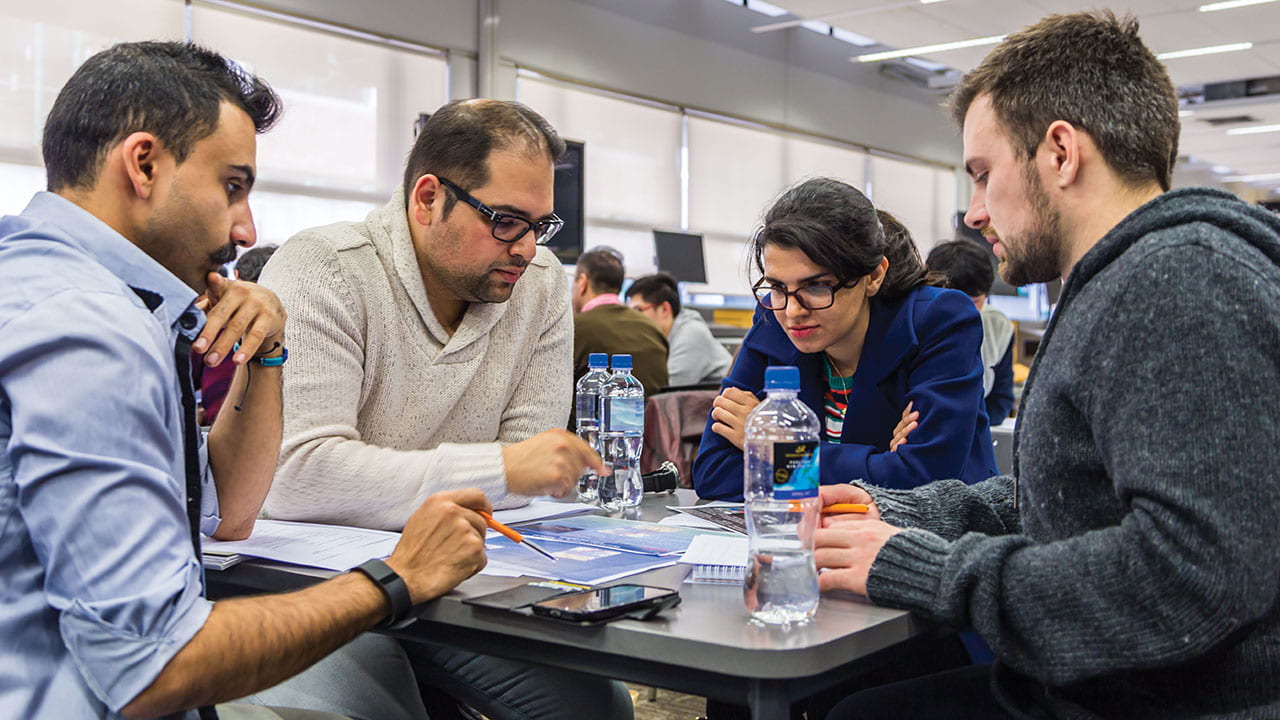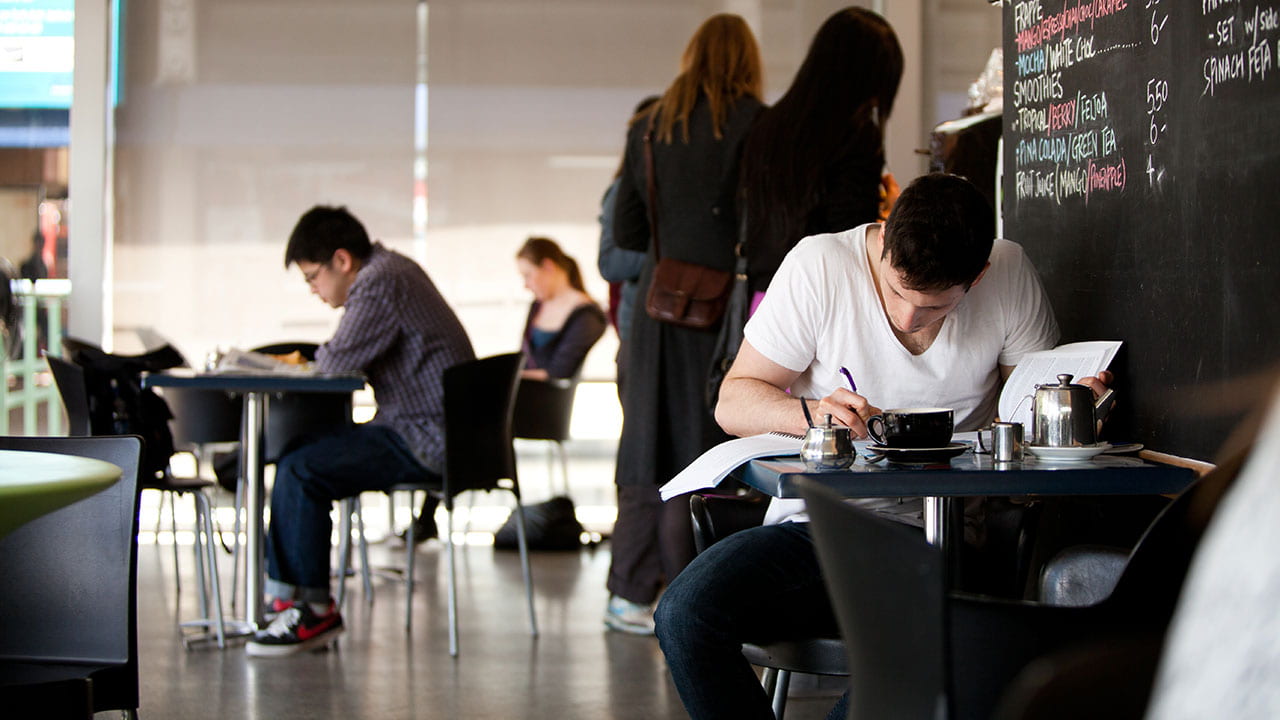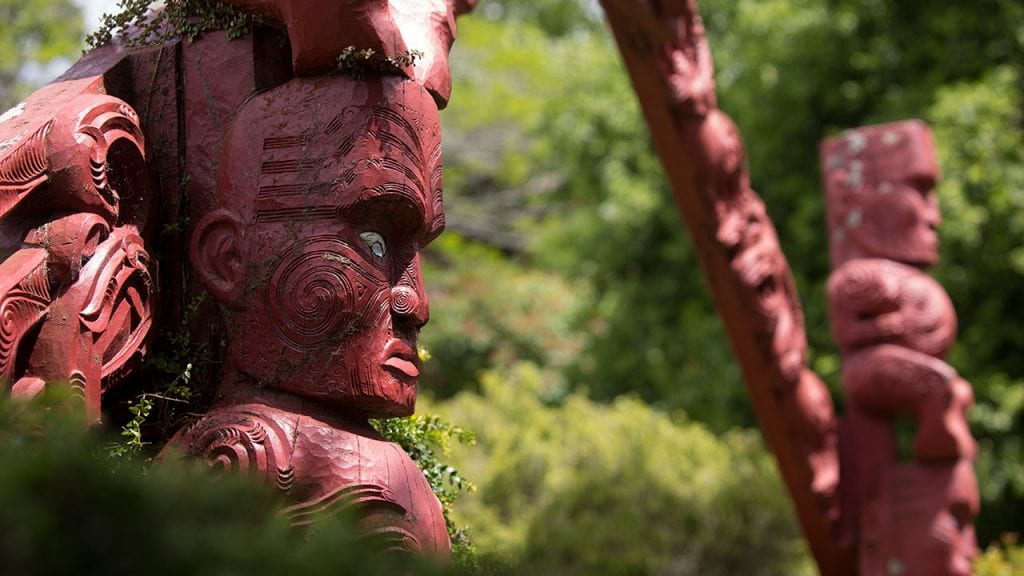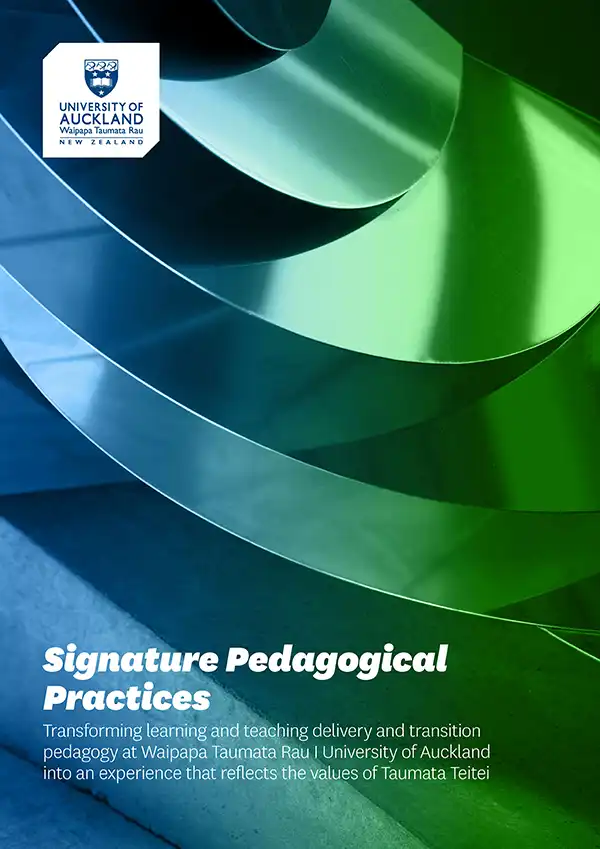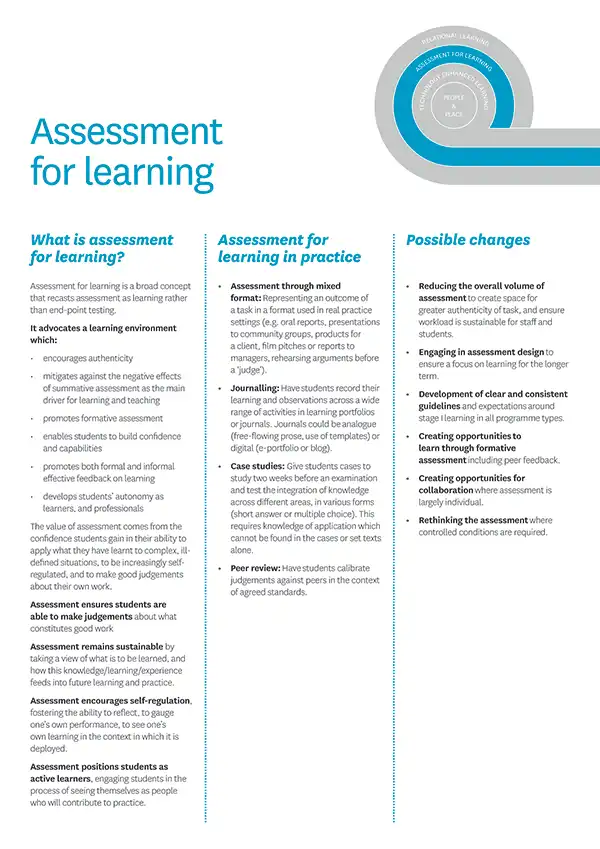Three educational anchor points—relational learning, assessment for learning, and technology-enhanced learning—are reflected in a set of pedagogical practices and experiences that aim to transform teaching and learning at the University of Auckland.
Signature Pedagogical Practices
Relational learning
Developing communities and cohorts of learning is scaffolded through appropriate learning environments, collaborative practices and relevant learning experiences.
Assessment for learning
This recasts assessment as learning, shifting the focus from end-point testing. Here we judge students’ abilities to meet learning outcomes in situations where they will be applied.
Technology-enhanced learning
TEL supports a wide variety of teaching modes from blended and flexible learning, multimodal teaching to local and distance students, and online or face-to-face learning.
Kaupapa Māori
Relational learning is central to Kaupapa Māori pedagogies, which promote a holistic view of learning that envisions people and place as intrinsically and reciprocally interrelated. Fundamental to this is the nature of the relation that underpins learning, where relational learning is values-based and respects diverse ways of knowing, being and doing.
Pūtoi Ako
Explore definitions and practical applications of mātauranga, kaupapa Māori pedagogies, and Te Tiriti in teaching and curriculum.
Supporting documents
Signature Pedagogical Practices overview
The overview document describes how the three anchor points link back to the aspirations of Taumata Teitei (vision and strategic plan) and ways in which these might be embedded within programmes and courses.
Signature Pedagogical Practices infographic
This is a printable version of the larger document, describing in brief what the three anchor points are, what they look like in practice and how they might influence change.
Curriculum Framework Transformation (CFT)
The CFT Hub provides deeper context into how the taumata, graduate profile and Curriculum Framework areas of change come together to deliver a distinctive University of Auckland experience.
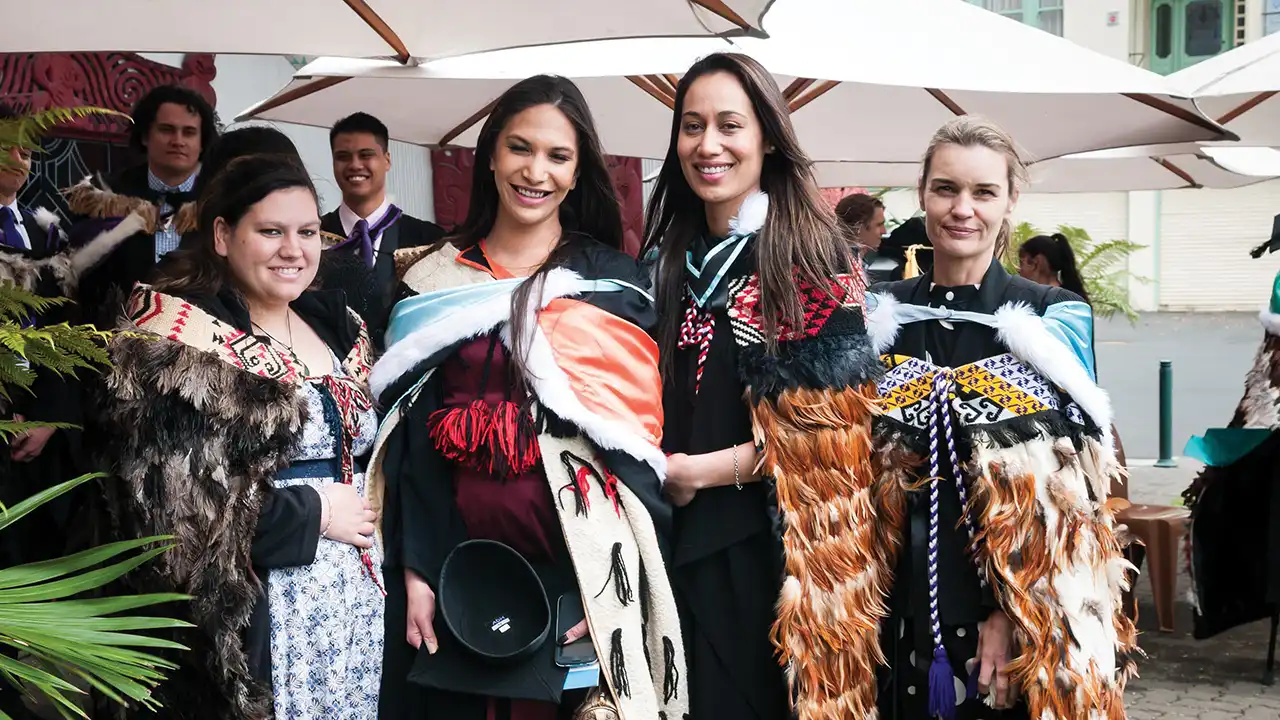
Page updated 02/07/2025 (minor edit)

